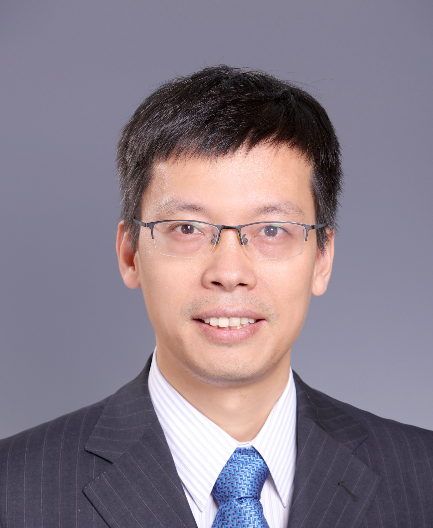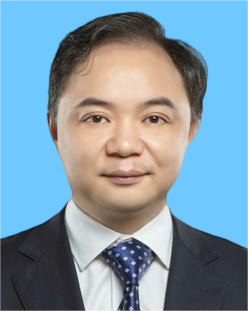IEEE-IARCE 2025 Speakers


Prof. KWONG Sam Tak Wu
Lingnan University, Hong Kong, China
IEEE Fellow, Fellow of US National Academy of Inventors (NAI)
Brief Introduction: Professor KWONG Sam Tak Wu is the Associate Vice-President (Strategic Research), J.K. Lee Chair Professor of Computational Intelligence, the Dean of the School of Graduate Studies, and the Acting Dean of the School of Data Science of Lingnan University. Professor Kwong is a distinguished scholar in evolutionary computation, artificial intelligence (AI) solutions, and image/video processing, with a strong record of scientific innovations and real-world impacts. Professor Kwong is one of the most highly cited researchers by Clarivate in 2022, 2023 and 2024. He has also been actively engaged in knowledge transfer between academia and industry. He was elevated to IEEE Fellow in 2014 for his contributions to optimization techniques in cybernetics and video coding. He was the President of the IEEE Systems, Man, and Cybernetics Society (SMCS) in 2021-22. He is a fellow of the US National Academy of Inventors (NAI), the Canadian Academy of Engineering, and the Hong Kong Academy of Engineering (HKAE). Professor Kwong has a prolific publication record with over 350 journal articles and 160 conference papers with an h-index of 96 based on Google Scholar. He is currently the associate editor of several leading IEEE transaction journals.
Speech Title: Empowering Multi-Robot Flocking in Complex Environments via Effective Communication: A Deep Reinforcement Learning Approach
Abstract: Multi-robot flocking is crucial for safe and cooperative navigation, with wide applications in logistics, service delivery, and mobile surveillance. Despite significant progress, developing effective flocking strategies under complex conditions remains challenging. Communication is a vital technique for multi-robot coordination. In this paper, we propose REIN, a novel deep reinforcement learning-based framework designed to improve communication effectiveness in leader-follower flocking systems through the Refinement and Enhancement of communication INformation. Firstly, regarding information refinement, a graph-based information refiner, integrating directed graph-structured communication with an innovative edge filter, is developed for selective multi-robot interaction. It helps robots adaptively focus on relevant neighbors, considerably alleviating information overload. Secondly, for information enhancement, a cognition-aligned information enhancer is designed that boosts information expressiveness by encouraging team consensus. It utilizes two cascaded leader-related objectives to optimize information towards cognitive alignment among decentralized followers. Extensive comparisons with state-of-the-art approaches and ablation versions demonstrate the superiority of our framework. Physical experiments are also conducted to validate its practicality.


Prof. Xiangyang Ji
Tsinghua University, China
Brief Introduction: Professor of the Department of Automation of Tsinghua University, the main research directions include machine learning, visual signal acquisition and processing. He is the director of the Department of Brain Science and Cognitive Science of the Automation Department. The National Science Fund for Distinguished Young Scholars, China Youth Science and Technology Award and other academic honors are awarded. He serves as the chairman of the Youth Working Committee of the Chinese Institute of Electronics, and the director of the Deep Learning Special Committee of the Chinese Association for Artificial Intelligence. He has published more than 100 SCI/EI papers in TCI, TPAMI, IJCV, NIPS, ICML, CVPR, ICCV and was authorized more than 40 national invention patents, 10 international invention patents. In addition, he and his team won the championship MSCOCO visual instance segmentation, ECCV visual quality enhancement, ICCV/ECCV 6D pose estimation and other international competitions etc. He was awarded the second prize of the National Scientific and Technological Progress Award in 2019 (Rank 1st) and the second prize of the National Technical Invention Award in 2023(Rank 1 st).
Speech Title: Vision-based object pose estimation
Abstract: The 6DoF pose estimation of an object is the key basis for many complex vision tasks in the real world, and has a wide range of applications in the fields of autonomous driving, virtual/augmented reality, and scene interaction. The report first reviews the development status of 6D pose estimation in recent years and the challenges it faces, and then introduces our deep convolutional neural network-based pose iterative matching framework DeepIM, and discusses how to design the decoupling representation of rotation and translation in pose estimation. We further introduce a detection-based framework to integrate the direct translation estimation and the indirect rotation estimation into a unified model, called CDPN. Afterwards, we present more recent progresses based on these two frameworks with self-supervision, reinforcement learning etc.


Prof. Huayan Pu
Chongqing University, China
Brief Introduction: Pu Huayan, recipient of the National Science Foundation for Distinguished Young Scholars and the China Youth Science and Technology Award. She is a Professor and a Doctoral Supervisor at Chongqing University, serving as the Director of the Institute of Robotics, Chongqing University. She is one of the overall expert group of the National Key Special Project on Marine Environment and Sustainable Development of Islands and Reefs. Her research interest mainly focus on transmission system dynamics, vibration and noise reduction, as well as individual and swarm intelligence of intelligent unmanned systems.
Speech Title: Programmable passive continuous mechanical computation with multistable mechanisms
Abstract: With advancements in materials science and manufacturing processes, physical intelligence and mechanical intelligence have garnered increasing attention. This report elaborates on the concepts, classifications, and cutting-edge developments of mechanical intelligence.


Prof. Weisheng Li
Chongqing University of Posts and Telecommunications, China
Brief Introduction: Li Weisheng, Chongqing University of Posts and Telecommunications, Ph.D., Professor, Doctoral Supervisor; Vice President of Chongqing University of Posts and Telecommunications. Specializing in big data intelligent computing, pattern recognition, and digital image processing.
Speech Title: Multimodal medical image processing and its application
Abstract: Multimodal medical image processing can provide doctors with rich visual guidance, thereby reducing surgical operation difficulty and enhancing precision. Focusing primarily on multimodal imaging such as clinical CT, MRI, and X-ray, it visually represents the multidimensional dynamic registration and fusion information of medical images, improving the reliability and stability of medical imaging systems.
